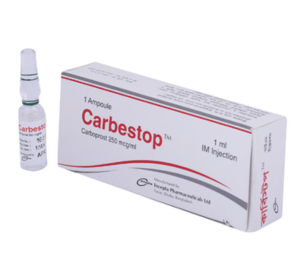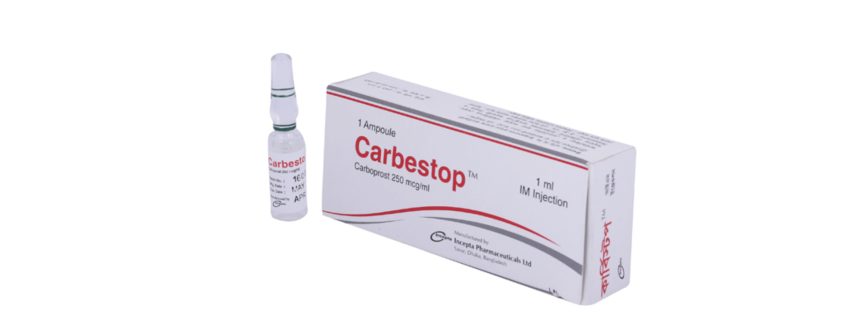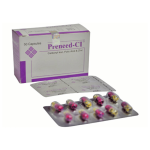Carbestop(Carboprost )

Therapeutic Group: Gynaecological
Presentation
Carbestop injection: Each ml injectable solution contains Carboprost Trometamol BP equivalent to Carboprost 250 mcg.
Description
Carboprost is a synthetic prostaglandin analogue of PGF2α that acts to increase the contractions of the uterus (womb) and can trigger abortion in early pregnancy. This also helps to control excessive bleeding after delivery.
Indications
Terminating pregnancy between the 13th and 20th weeks of gestation
In the following conditions related to second trimester abortion:
1. Failure of expulsion of the fetus during the course of treatment by another method;
2. Premature rupture of membranes in intrauterine methods with loss of drug and insufficient or absent uterine activity;
3. Requirement of a repeat intrauterine instillation of drug for expulsion of the fetus;
4. Inadvertent or spontaneous rupture of membranes in the presence of a previable fetus and absence of adequate activity for expulsion.
Treatment of postpartum hemorrhage due to the uterus failing to return to its normal size and who have not responded to conventional treatments.
Dosage & Administration
1. Abortion and Indications 1–4
An initial dose of 1 ml of Carbestop (containing the equivalent of 250 mcg of Carboprost) is to be administered intramuscularly. Subsequent doses of 250 mcg should be administered at 1½ to 3½ hour intervals depending on uterine response. An optional test dose of 100 mcg (0.4 ml) may be administered initially. The dose may be increased to 500 micrograms (2 ml) if uterine contractility is judged to be inadequate after several doses of 250 mcg (1 ml). The total dose administered of Carbestop should not exceed 12 mg and continuous administration of the drug for more than 2 days is not recommended.
2. For Refractory Postpartum Uterine Bleeding:
An initial dose of 250 mcg of Carbestop (1 ml) is to be given deep, intramuscularly (IM). If needed the dose of 1 ml may be repeated between 15 to 90 minutes. The total dose of Carbestop should not exceed 2 mg (8 doses).
Side Effects
The most frequent adverse reactions observed are related to its contractile effect on smooth muscle, especially gastrointestinal effects like vomiting, nausea, diarrhea and pyrexia.
Endometritis, retained placental fragments, and excessive uterine bleeding occurred as the most common complications after abortion with Carboprost.
Precautions
• Use Carboprost by medically trained personnel in a hospital which can provide immediate intensive care and acute surgical facilities.
• Use Carboprost cautiously in patients with a history of asthma, hypo- or hypertension, cardiovascular, renal or hepatic disease, anemia, jaundice, diabetes or epilepsy and compromised (scarred) uteri.
• In few patients with chorioamnionitis, uterus may not respond to Carboprost.
• Cervix should always be carefully examined immediately post-abortion.
Use in Pregnancy & Lactation
Pregnancy category C
Drug Interaction
Carboprost may augment the activity of other oxytocic agents. Concomitant use with other oxytocic agents is not recommended.
Storage
Store at 2-8°C. Do not freeze. Keep away from light. Once the ampoule has been opened, the product should be used immediately.
Commercial Pack
Carbestop Injection: Each box contains 1 ampoule.



